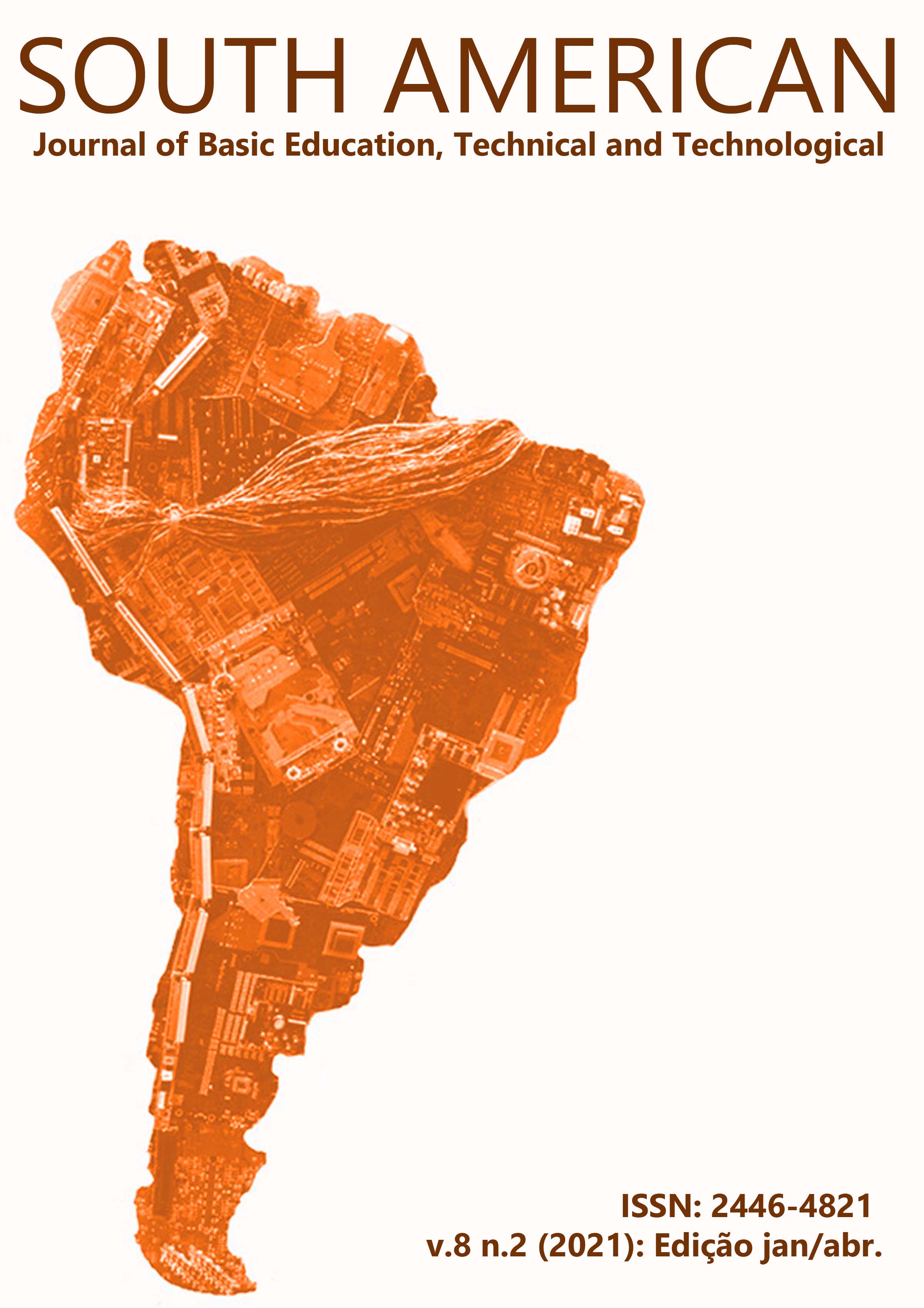PERCEPTION OF FAMILY AND PROFESSIONALS ABOUT CHILDREN'S HOSPITALIZATION IN THE ICU
Perception of family and professionals about children's hospitalization in the Intensive Care Unity
Keywords:
Percepção; Unidades de Terapia Intensiva; Humanização da Assistência; Família.Abstract
Objective: to identify the perception of family members and health professionals about the child's hospitalization in an Intensive Care Unit. Method: qualitative research with family members and health professionals at the Pediatric Intensive Care Unit. It was carried out through a semi-structured interview, between March and June 2019 and the informations were analyzed using the categorical discourse method. Results: eight categories emerged in the content of the statements. Conclusion: It was observed that the professionals feel responsible and have a bond with the children, however, it is necessary that they establish their communication relationships, that they see the family as part of the child's decision and healing process. It is necessary to allow the child full access to their parents or guardians, providing the extended visit, as recommended in the legislation and the right of the child.
Downloads
References
2. Caram CS, Rezende LC, Montenegro LC, Amaral JM, Brito MJM. Ambiguidades no trabalho da equipe de saúde no contexto de uma unidade de terapia intensiva. Sanare. 2016; 15(1): 15-24.
3. Moreira MADM et all. Public humanization policies: integrative literature review. Ciência & Saúde Coletiva. 2015; 20(10):3231-42.
4. Luiz FF, Caregnato RCA, Costa MR. Humanization in the Intensive Care: perception of family and healthcare professionals. Rev. Bras. Enferm. 2017; 70 (5): 1040-47.
5. BRASIL. Portaria Nº 895, de 31 de março de 2017. Institui o cuidado progressivo ao paciente crítico ou grave com os critérios de elegibilidade para admissão e alta, de classificação e de habilitação de leitos de Terapia Intensiva adulto, pediátrico, UCO, queimados e Cuidados Intermediários adulto e pediátrico no âmbito do Sistema Único de Saúde – SUS. Diário oficial da união. 31 mar de 2017.
6. Barth AA, Weigel BD, Dummer CD, Machado KC, Tisott TM. Stressors in the relatives of patients admitted to an intensive care unit. Rev Bras Ter Intensiva.2016;28(3):323-329.
7. Minayo MCS. Qualitative analysis: theory, steps and reliability. Ciênc. saúde coletiva. 2012; 17(3): 621-26.
8. Turato ER. Tratado de metodologia clínico-qualitativa. Petrópolis, RJ: Vozes, 2008.
9. Balbino FS, Balieiro MMFG, Mandetta MA. Measurement of Family-centered care perception and parental stress in a neonatal unit. Rev. Latino-Am. Enfermagem 2016;24:e2753.
10. Allie Z, et all. Sobrecarga de luto e seus efeitos e mecanismos de enfrentamento relacionados a profissionais de saúde e administradores de enfermarias no Hospital Nacional do Distrito em Bloemfontein, Estado Livre. Afr. j. prim. cuidados de saúde fam. med. 2018; 10 (1).
11. Schmollgruber, S . Family care in intensive care units. S Afr J Crit Care.2019 2020;35(1): 7-7.
12. Torres-Ospin JN, Vanegas-Díaz CA, Yepes-Delgado, CE. Patient and Family-Focused Care in the Pediatric Intensive Care Unit of the Pablo Tobon Uribe Hospital. Systematization of the Experience. Rev. Gerenc. Polit. Salud. 2016; 15 (31): 190-201.
13. BRASIL. LEI nº 6.366, de 28 de agosto de 2019. Dispõe sobre a permanência de acompanhantes nas dependências das unidades de terapia intensiva dos hospitais, unidades de pronto atendimento e maternidades públicas e privadas e dá outras providências. 28 ago de 2019.
14. Rosa RG, Falavigna M, Silva DB, Sganzerla D, Santos MMS, Kochhann R, et al. Effect of flexible family visitation on delirium among patients in the Intensive Care Unit: The ICU visits randomized clinical trial. JAMA. 2019; 322(3): 216–28.
15. BRASIL. Ministério da Ação Social. Centro Brasileiro para a Infância e Adolescência. Estatuto da Criança e do Adolescente. Brasília; 1990.
16. Azevêdo AVS, Júnior ACL, Crepaldi MA. Nursing team, family and hospitalized child interaction: an integrative review. Ciência & Saúde Coletiva. 2017; 22(11):3653-66.
17. Rodrigues AC, Calegary T. Assistance humanization in pediatric intensive care unit: perspective of nursing staff. Rev Min Enfermagem. 2016; 20 (933): 1-7.
18. Varela APAS, Microbiological evaluation of handsets escort in the intensive care unit: a literature review. Jornal of infection control. 2018; 7(4).
19. Wiinberg S, et all. Questionnaire-based evaluation of mobile phone interference with medical-electrical equipment in Swedish hospitals. Technol Health Care. 2017; 25 (4): 791-796.
20. Sanabria MLV, Rodroguez LM. Needs of Parents in Caring for Their Children in a Pediatric Intensive Care Unit. Invest Educ Enferm. 2016; 34(1):29-37.
21. Garros D, Joffe AR. Family Visitation Policies in the ICU and Delirium. JAMA. 2019; 322 (19): 1924-1924.
22. Kappel VG, Goulart BF, Pereira AR, Chaves LDP, Iwamoto HH, Barbosa MH. Professional-family communication in a children’s psychosocial care center: practicalities and difficulties. Texto contexto - enferm. 2020; 29: e20190025.










